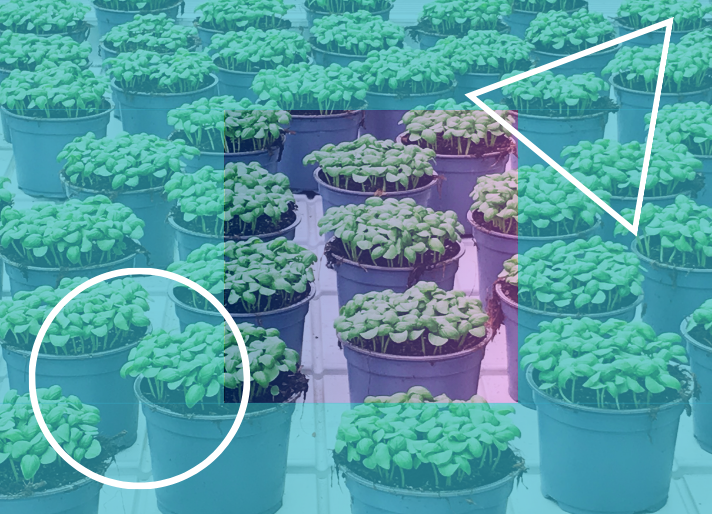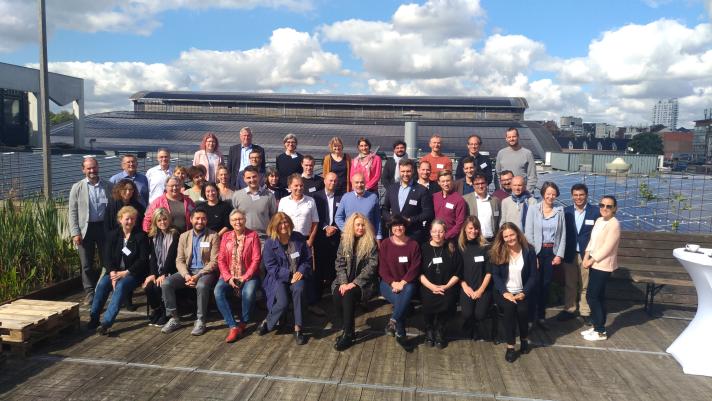
What will agriculture look like in 2040? More importantly, how can we ensure that farmers and rural communities reap the benefits of digital technologies, while staying true to their values and needs?
Vision building through foresight
Similar to other sectors, digitalisation is one of the key issues that will have an impact on the lives of farmers and rural communities by 2040. Rapid technological development holds the potential to transform farming practices, enhance productivity and improve people’s lives, but there are also clear risks and challenges that digitalisation might bring along. Having a clear vision for the digital transition can help steer this process and develop appropriate policy tools and take action.
A vision is an inspirational image of the future that provides a strategic direction for policymaking. One of the important contributions of foresight is to help people develop meaningful, attractive, credible and motivating visions.
For a vision to be effective, it needs to be future-oriented, credible and aligned with the values and principles of a group of people. Arriving to such a vision involves a process of co-creation and active engagement ensuring that the key actors will stand behind the vision.
Here at the EU Policy Lab we have been working with the European Commission’s Department for Agriculture and Rural Development in the ongoing foresight study on ‘Long-Term Implications of the Digital Transition for Farmers and Rural Communities’.
Why are we doing this?
Our aim is to examine how digitalisation policies and strategies can contribute to the resilience of the agricultural sector and rural areas considering potential disruptive and transformative changes.
With this study we seek to:
- Create a set of disruptive, transformative futures and a shared vision for the digital transition of agriculture and rural communities
- Test digitalisation policy options and their contribution to resilience against the transformative futures
- Develop a toolkit for testing and improving digitalisation strategies at EU, national and local levels
The 2040 study time frame has helped us to move beyond the current budgetary and policy planning horizon and through highly participatory approaches, we involved key players to have a multidimensional understanding of the issue.
Online vision building workshop
In March 2023 we brought together a diverse group of stakeholders to start building the foundation of a shared long-term vision of digital transition. Two key questions guided our reflection:
- What is the purpose of the digital transition from the perspective of farmers and rural communities?
- What are the principles and values that should guide this transition?
At the beginning of the workshop, participants reflected on their wishes for digitalisation of agriculture and rural areas in 2040. Answers pointed out a number of important aspects of digitalisation such as making sure that digital tools are ‘fit for purpose’, ‘not driven by big tech’, ‘empowering the rural communities’, ‘accessible and affordable for everyone’.
In the opening session, participants discussed ways in which digitalisation could reinforce or change the current narratives around agriculture.
Many issues emerged from that discussion, including among others the need to develop a narrative around digitalisation as being purpose driven rather than an end in itself, the need for reaching an agreement what aspects of agriculture can be kept non-digital and finally to understand that the overarching purpose of digitalisation should be beyond improving efficiency of the agriculture.
In the next exercise, the participants reflected on the values and principles that could be part of the vision to guide the digital transition. Each group came up with a number of the most relevant principles from the following categories: people-centred digital tools, economic digital activity, governance of digital supply and community networks, digital skills and knowledge, digital infrastructure and services, and selection of principles.
The inputs we received from the groups constituted the backbone of our vision framework. We continued our work by identifying the missing elements and potential tensions between the components of the emerging vision framework.
In the final stage of the workshop, the participants tested the application of the vision framework to a concrete digitalisation initiative. Their task was to come up with a list of questions policymakers could ask themselves to align the initiative with the vision framework (e.g. availability of high-speed internet, digital skills, automation and robotisation of agricultural production).
Save the date!
The rich discussions and outputs from the groups helped us shape the vision framework for the digital transition. This framework was a starting point for discussions at the policymaking workshop that took place in Brussels at the end of May 2023.
We are now processing all the insights and recommendations into the final report and building the toolkit for policymakers. Join us on 8 December 2023 at the AGRI-Digital Conference for the launch of the final report and the toolkit during the EU Agri-Food Days.
Have a look at the agenda and register to attend on site!
If you want to find out more about foresight and agriculture, take a look at our 2020 study on the Farmers of Future.
Sources
Details
- Publication date
- 19 July 2023
- Author
- Joint Research Centre
- Department
- Directorate-General for Agriculture and Rural Development
- EU Policy Lab tags





